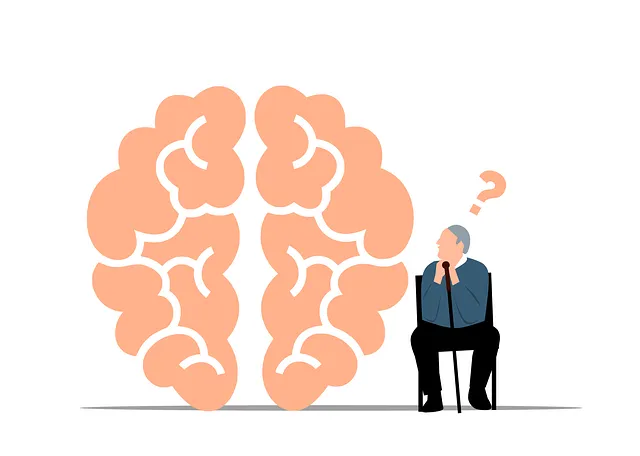Mental wellness self-assessment tools, though valuable, lack cultural sensitivity and tailored options for diverse populations in Longmont, where stress and mental health challenges are common. Kaiser's mental health coverage in Longmont offers comprehensive services, but existing self-assessments struggle to cater to varied needs, including mindfulness practices. Enhancing these tools with nuanced cultural perspectives is crucial to ensure they resonate with residents seeking mental wellness guidance. Strategic implementation, regular evaluations, and data-driven improvements are essential for creating effective resources that support emotional well-being outcomes. Addressing "Longmont does Kaiser cover mental health?" effectively requires culturally sensitive self-assessment tools.
In today’s digital age, access to reliable mental wellness self-assessment tools is crucial for individuals seeking support. This article explores the development of such tools, focusing on understanding their significance and addressing gaps in current methods. We delve into specific examples like Kaiser’s mental health services coverage in Longmont to highlight existing resources. By examining challenges and designing effective assessments, we aim to guide the implementation of innovative tools that can significantly impact long-term mental wellness. Additionally, we discuss evaluating their success, ensuring positive outcomes for those in need, particularly in areas where access to traditional mental health services like Kaiser’s coverage in Longmont may be limited.
- Understanding Mental Wellness Self-Assessment Tools
- Kaiser's Coverage for Mental Health Services in Longmont
- Gaps and Challenges in Current Assessment Methods
- Designing Effective Self-Assessment Tools
- Implementing and Evaluating the Impact of New Tools
Understanding Mental Wellness Self-Assessment Tools

Mental wellness self-assessment tools are designed to help individuals gain insights into their mental health and well-being. These tools offer a structured way to evaluate one’s emotional, psychological, and social state, enabling better understanding of potential areas of concern or growth. By using evidence-based methods, these assessments can guide users toward effective self-care practices and facilitate the exploration of underlying issues affecting their mental wellness.
In today’s world, where stress and mental health challenges are prevalent, such tools play a crucial role in empowering individuals to take charge of their well-being. For instance, those wondering “Does Kaiser cover mental health in Longmont?” can use these assessments as a starting point for understanding their current state and deciding on appropriate next steps, whether it be seeking professional help or adopting emotional healing processes to boost their confidence.
Kaiser's Coverage for Mental Health Services in Longmont

In Longmont, Kaiser’s comprehensive healthcare coverage extends to mental health services, offering a safety net for residents seeking support for their emotional well-being. The organization’s commitment to addressing mental health concerns is evident in its array of specialized programs and resources available to its insured. This includes access to therapists, counselors, and psychiatrists who are trained in various therapeutic approaches, ensuring individuals can receive personalized care tailored to their unique needs.
Kaiser’s coverage encourages a holistic view of mental wellness, promoting not just the treatment of symptoms but also the cultivation of emotional intelligence and empathy-building strategies. Through regular check-ins and continuous care, Kaiser facilitates effective mood management, enabling members to lead balanced lives. This comprehensive approach ensures that Longmont residents have the tools and support needed to navigate and overcome mental health challenges.
Gaps and Challenges in Current Assessment Methods

The current landscape of mental wellness self-assessment tools presents several gaps and challenges, particularly when it comes to addressing diverse populations’ unique needs. Many existing assessments lack cultural sensitivity in mental healthcare practice, failing to account for variations in beliefs, values, and expressions of distress across different cultural backgrounds. This oversight can lead to misdiagnosis or inadequate treatment plans. For instance, what constitutes ‘stress management’ may differ significantly between urban and rural communities, impacting the effectiveness of interventions.
Additionally, while mindfulness meditation has gained popularity as a complementary practice, its integration into self-assessment tools is still nascent. Incorporating such techniques requires a nuanced understanding of individual experiences and preferences, which current methods often fail to capture. Longmont residents wondering “does Kaiser cover mental health?” might find limited options tailored to their specific cultural needs or interested in exploring mindfulness as part of their wellness journey, highlighting further areas where assessment tools can be enhanced.
Designing Effective Self-Assessment Tools

Developing effective self-assessment tools for mental wellness requires a thoughtful and nuanced approach. These tools play a pivotal role in helping individuals gain insights into their emotional well-being, identify potential areas of concern, and take proactive steps towards improvement. When designed with cultural sensitivity in mental healthcare practice in mind, they can be even more impactful. Incorporating diverse perspectives ensures that the assessments resonate with a broader range of users, fostering trust and encouraging honest self-reflection.
For instance, when Longmont residents consider their mental health coverage through Kaiser, understanding how these tools address individual needs is crucial. Self-esteem improvement and trauma support services are critical components that can be integrated into comprehensive self-assessment platforms. By focusing on these aspects, professionals can create resources that not only evaluate but also empower users to navigate their mental wellness journeys with greater confidence and resilience.
Implementing and Evaluating the Impact of New Tools

Implementing new mental wellness self-assessment tools requires a strategic approach to ensure their effectiveness and impact on individuals’ emotional well-being promotion techniques. Kaiser, for instance, offers coverage for mental health services in Longmont, Colorado, providing a foundation for these tools to be integrated into existing healthcare systems. The evaluation process should assess how these tools contribute to enhancing mental health awareness and facilitating emotional healing processes. By measuring user feedback, engagement rates, and improvements in self-reported mental health metrics, developers can gauge the success of their interventions.
Regular assessments allow for iterative improvements, ensuring that the tools remain relevant and beneficial over time. This involves analyzing usage patterns, identifying areas of improvement, and making data-driven adjustments to cater to diverse user needs. Ultimately, successful implementation translates into better support for emotional healing processes, aligning with broader goals of mental health awareness promotion.
Mental wellness self-assessment tools play a pivotal role in empowering individuals to take charge of their mental health. By identifying potential issues early, these tools can significantly impact treatment outcomes and overall well-being. As discussed, there is a gap in accessible and user-friendly assessment methods, especially for communities like Longmont where Kaiser’s mental health services are limited. This article has explored the development process, from understanding current tools to designing effective new solutions. Implementing innovative self-assessment tools can help bridge the gap in mental health care, ensuring folks in Longmont have better access to resources and support for their mental wellness journey.






